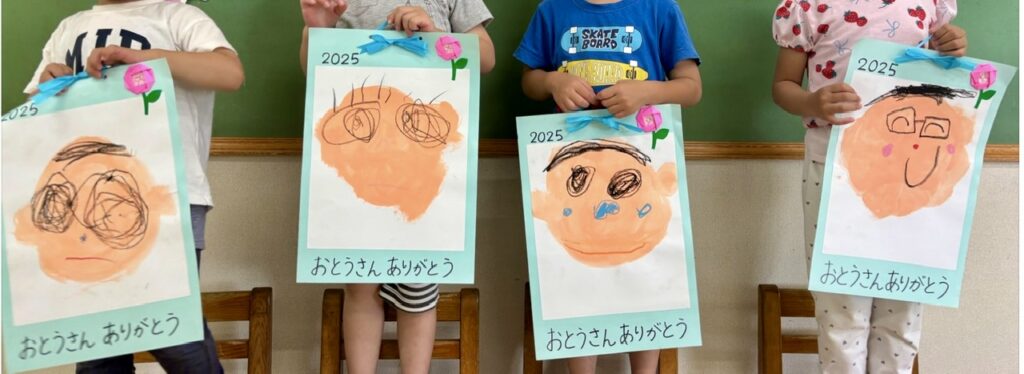









👧「こんにちは〜」
幼稚園の門の向こうから、元気の良い声が聞こえてきました。
👩🏫「誰?」誰かと思えば卒園生でした。
「〇〇。先生、分かりますか?」
👧小学生のお姉さん3人卒園生が来園し、
久し振りすぎて、すっかり背も高くなり、お姉さんになった姿に驚きました。
話し方も幼稚園の時とは全く違い成長振りは、外見だけでなく心も何回りも大きくなっていました。
そして
何よりもこうして顔を見せにきてくれたことが、✨とても嬉しかったです✨
先生たちはずっとみんなのことを応援してるよ!
また、遊びにきてね🤭

6月15日は父の日です。
お父さん、いつもありがとう💓 💓
【 3歳児さんの描いたお父さんの似顔絵 】 3歳児さんは初めてお父さんへのプレゼント


🌱園の魅力をご案内できる「幼稚園説明会」
第1回当日まで、 ✨✨あと2日✨✨ となりました。
🌳森の中にあり、🧒子どもたちの笑顔があふれる 諏訪幼稚園 では、
下記の日程で幼稚園の説明会を開催いたします。
当園での保育内容や、園での生活、
私立幼稚園ならではの「特色ある教育活動」について、ご紹介いたします。
👩はじめての園選びでご不安なこと、気になることなどもお気軽にご相談ください。
「園選びをどうしようかな~」と迷っている方も、
事前申し込みがまだの方も、
ぜひこの機会にお申し込みください。
お問い合わせフォームまたはお電話058-231-7427から
【日にち】 6月12日(木)
ご都合が悪い場合 6月(土)午前10時からの回も受付中
【時間】 午後2時30分から約1時間
【場所】 諏訪幼稚園 (駐車場は園舎北に14台)
【持ち物】室内用スリッパ(園にもあります) 筆記用具 水分補給のための水筒